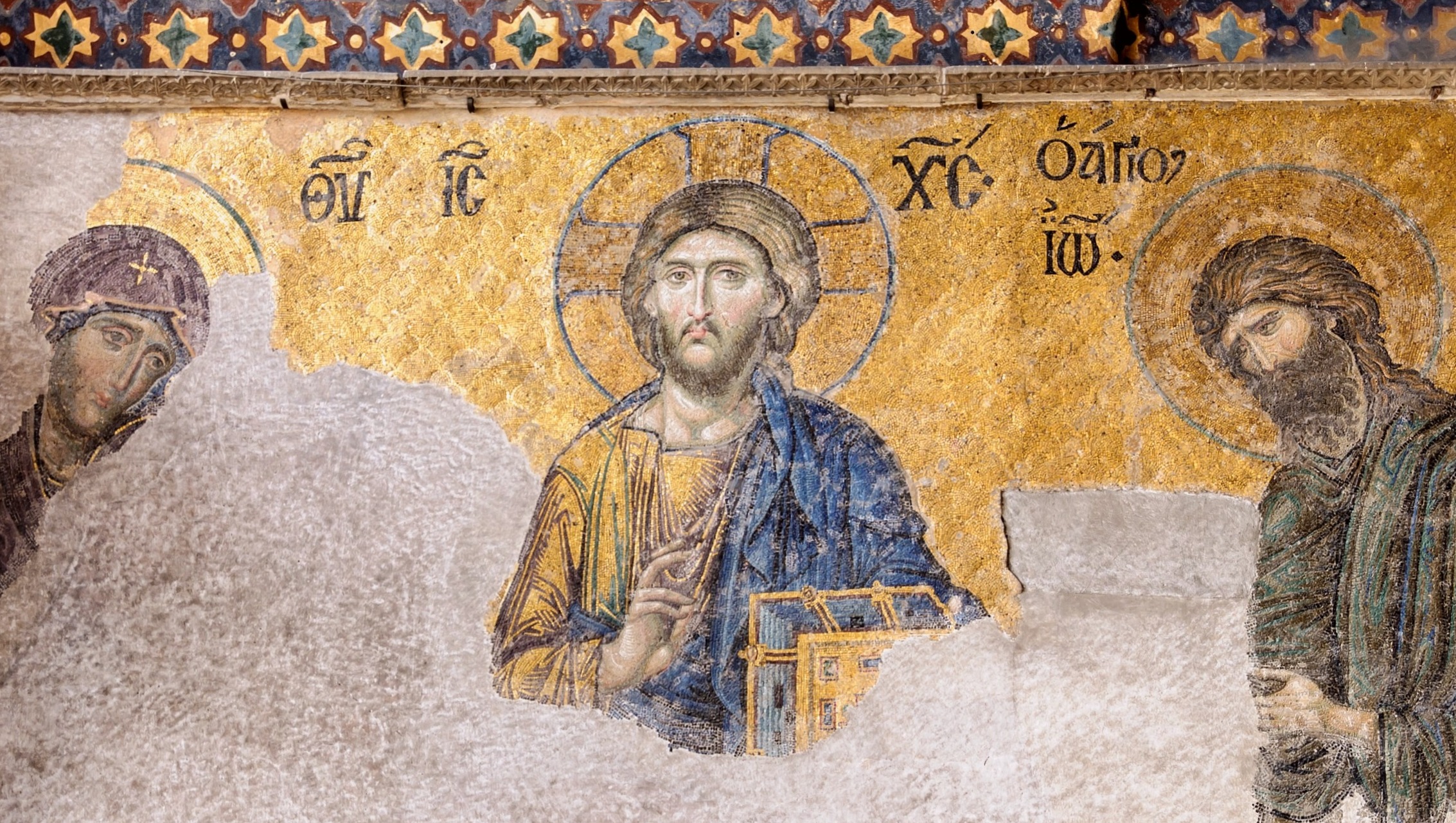
The Son, Savior and Messiah
Background
Unlike other the other cults that emerged in the days of the Roman Empire, Christians revere a singular deity. As such, they call Him 'God'. He is known by many names: Jesus Christ, YHWH, the Lord, our Father.
Tradition holds his apostles founded the various churches of the ancient world in the wake of his resurrection. The five most prominent being Cephas (also known as Peter), reported to have been Bishop of Rome and Antioch, Andreas, Bishop of Byzantion (later Constantinople, the New Rome), James (also known as Jacob), Bishop of Jerusalem, and Marcus, Bishop of Alexandria.
History
The origins of Christianity lie in the earlier religion of Judaism. The holy text of Judaism is the Tanakh, what Christians call the Old Testament. Despite being a monotheistic religion for most of recorded history, scholars have generally concluded the Jewish peoples initially revered a pantheon of gods closely linked to the neighboring Canaanites. Passing centuries with the destruction of the First Temple and the Babylonian Exile, Jewish beliefs gradually shifted from henotheistic to monotheistic, with the formerly chief deity El becoming conflated with YHWH. In time, Jerusalem and the Jewish people would be conquered by the Romans under the command of Pompey Magnus.
Jesus of Nazareth was born in the region of Galilee some decades after this during the reign of Emperor Augustus. We have no direct accounts of his life, instead deriving the bulk of our knowledge from four anonymous accounts known as the Gospels and the writings of the convert Saul of Tarsus, also known as Paul. According to the Gospels Matthew and Luke, Jesus was descended from King David via his stepfather Joseph and born in the city of Bethlehem, fulfilling the prophecies of the ancient Jews regarding the Messiah.
Later in life, he was baptized by John the Baptist, and began a public ministry of preaching. Over the course of his ministry, he gathered twelve disciples and is claimed to have accomplished a variety of miracles before running afoul of the Roman authorities. Betrayed by his disciple Judas Iscariot, Jesus was presented to the Roman Prefect of Jerusalem, Pontius Pilate, and was found guilty of insurrection against the state, condemned to death by crucifixion. After he died, his followers believed him to have risen from the dead and ascended into Heaven.
Mythology and Legends
According to both Christian and earlier Jewish theology, God created the world in six days, led the Jewish people to Israel in the Exodus from Egypt, gave the Ten Commandments to Moses, and established the Jews as his chosen people. Christians today additionally claim the Son of God came to Earth as Jesus Christ and died on the cross before rising again on the third day, ascending to the right hand of the Father.
A critical difference between the Christian and Jewish interpretations of God is the notion of the Trinity; the idea of three persons in a single Godhead, the Father, the Son (Jesus Christ) and the Holy Spirit, with all three being distinct yet all equally God. The workings and canonical status of the Trinity has been a point of controversy among Christians topic for millennia. Despite various explanations for it posited by theologians and philosophers over the millennia, the Trinity is a mystery, and is therefore not meant to be understood by humans.
In Ancient Rome
In early Christian history, specifically in the Pre-Nicean history, Christianity was persecuted by Roman authorities. The first persecution could be seen in the Crucifixion of Jesus, when Pontius Pilate executed Jesus for people declaring him 'King of the Jews'. The severity of later persecution varied, initially overseen sporadically by the local governments. But following the Great Fire of Rome in 64 CE, Emperor Nero began the first widespread persecutions of Christians. Nero blamed the Christians for the fire that had ravaged Rome, having them arrested and executed on the charge of arson. While the innocence of the Christians is generally accepted, the severity of this persecution is disputed on account of later Christian bias against Nero and demonization of him by contemporary authors.
Following the Diocletianic Persecution, Constantine and his last remaining Tetrarchic colleague, Emperor Licinius, issued the Edict of Milan, granting Christians the right to freely and legally worship. After Constantine had gained sole control over the empire, he began to favor the religion, associating Sol Invictus (the Unconquered Sun) with the Christian God, gradually transitioning festivals of the former onto the latter. He would later call the First Ecumenical Council at Nicaea in 325 CE, settling the Arian Controversy (a debate over the nature of Christ's divinity) and being baptized shortly before he died in 337 CE.
Despite Constantine's tolerance of both Christian and Pagan religions, his successors did not share his views. Emperor Theodosius I (r. 379 CE - 395 CE) issued a mass purge of Paganism across the Empire, outlawing all public worship of the pagan deities and closing down temples and public rites, including the famed Oracle of Delphi and Olympic Games.
Later, Emperor Justinian (r. 527 CE - 565 CE) would create the Pentarchy out of the aforementioned five bishoprics. The Bishop of Rome would later be known as the Pope, adopting the earlier pagan title of Pontifex Maximus. The Bishop of Byzantion would become known as the Ecumenical Patriarch of Constantinople. In 1054, the Pentarchy split, and although brief mendings of the schism would occur, most prominently in 1453 during the final days of the central empire, the schism remains in place to this day.